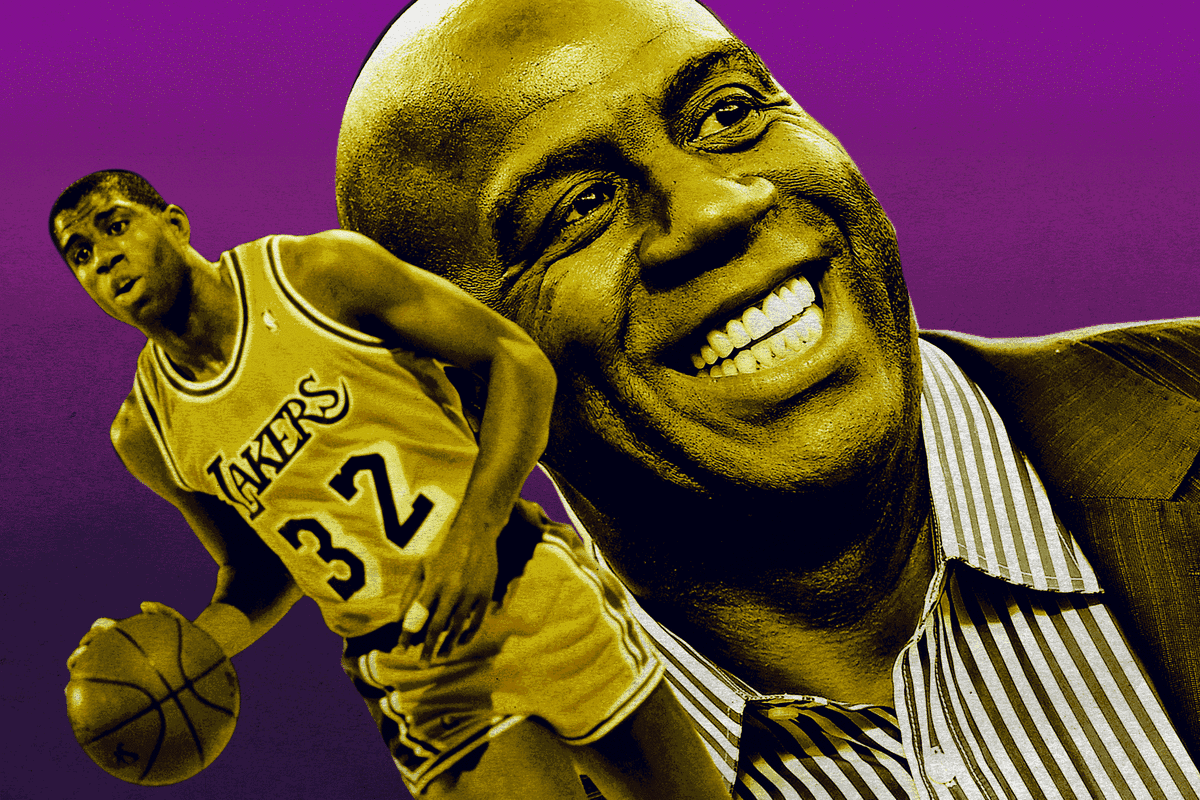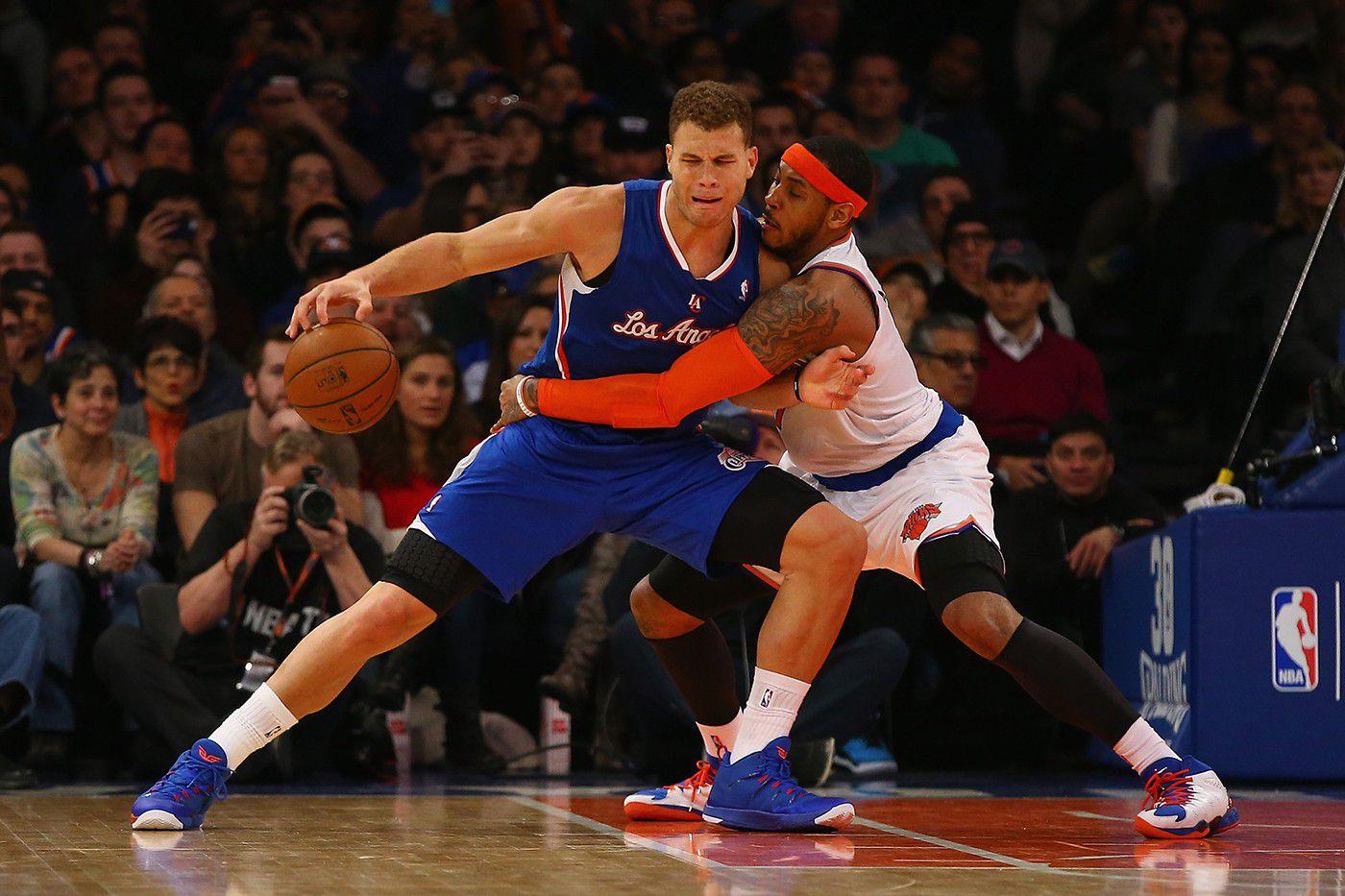
It was June 2001, and I was watching the Lakers win the title on a tube television above the bar in a too-spiffy-for-me-at-the-time restaurant around the corner from the Wiltern Theatre in Los Angeles. It was my first time in L.A. It pleases me to note that, despite the city’s glittering reputation, there was trash overflowing the trash cans and paper coffee cups blowing down the sidewalks like any other self-respecting American metropolis. Tinsel Town, my ass! I hadn’t even seen any famous people. It was late in Game 5 of the Finals, and the Lakers were up big. Of course. Allen Iverson, rendered in glorious 240p, was stepping to the line. At the bar, a dude with a Pat Riley–esque carapace of hair and a suit blazer that probably cost more than my rent drawled, “Bye, Iverson, you little thug.”
What struck me, as I picked at my french fries, wasn’t the remark’s casually problematic overtones (we were all less woke then), but its easy arrogance. The series wasn’t over. But, clearly, it was over, and had been for couple of games. The Lakers had the league’s two best players and Phil Jackson pulling the strings. Kobe was only 22. And they were the Lakers. Who could stop them?
The Sacramento Kings were a lively band of fun-loving miscreants who were not coincidentally devoid of championship composure. This was a large part of their charm. The Spurs were indisputably great, but watching Tim Duncan bang in bank shots was like taking a barrage of tranquilizer darts to the jugular. The Trail Blazers had yet to recover from their 2000 Game 7 collapse against the Lakers. Meanwhile, the Eastern Conference was just beginning a decade-long swoon.
Southern California’s structural advantages — sunshine, money, cache, multimedia opportunities, ridiculously attractive people — had always been attractive to superstars. And, seemingly, always would be. Bye, Iverson. Bye, league. Bye, everybody.

Bye, Lakers. For Lakers fans, the downfall came with shocking swiftness. For their many haters, those fans of teams that had suffered year after year at the hands of the purple and gold, the root-and-branch totality of the destruction was nothing short of beautiful: Kobe’s final years reduced to a quagmire of egomania and injury; handpicked Buss family scion Jim morphing into a failson cautionary tale; the simpering “Stay” Dwight billboard; Chris Kaman dozing on the bench at Staples like a hobo at a train station; Byron Scott delivering Stone Age basketball with his arms locked across his chest. The team is staggering blindly through the worst four-year stretch in its nearly 70-year history. And, shockingly, star free agents are looking the Lakers up and down and saying, “No, thanks.”
The advantages that once seemed so insurmountable are still there. Hollywood is Hollywood. Jack Nicholson still sits courtside. The sun’s golden rays still fall like a benediction over the land. But the franchise’s star-attracting glow has been steadily dimmed by a variety of forces over the last dozen years: the influence of analytics on the game; a new generation of Moneyball-minded executives; and the market-force-multiplying power of the internet and social media.
Location still matters, but in 2017, a player can become a brand no matter what market he plays in. And, now that the winning has ceased, the Lakers have discovered the downside to being a major market: Media scrutiny really sucks when you’re bad. It’s a reality the Knicks have been living for basically their entire existence.
Multiyear, Process-style tanking isn’t really an option in Los Angeles or New York. The 2014–15 Knicks were in full tank mode for Karl-Anthony Towns. It was a solid attempt to get the top pick in a loaded draft and everyone knew it. Yet the local media still treated the season as if it were an unmitigated disgrace rather than a rational course of action. Losing 60 games in Orlando or Milwaukee or Charlotte is bad. Losing 60 in Los Angeles is a national story. The Oklahoma City Thunder, as the only pro game in town, can stiff-arm the local media. The Lakers will never have that option. Superstars are exceedingly rare. Rarer still is the type of star willing to shoulder the responsibility, night after night, of a bad major-market team. Can you imagine Tim Duncan on the Knicks?

When the seas turn rough, it’s common for organizations to turn inward for direction. A franchise will try to tap into its core character while inoculating the team against criticism from its base. Old warhorses always get a longer lead. Who better to safeguard a team’s legacy than someone whose sweat stained the colors? And so you have John Paxson, who won three titles as a Bulls player, transitioning into Chicago’s front office; Danny Ainge, now one of the longest-tenured executives in the league, at the helm of the Celtics; Vlade Divac’s well-worn hangdog as the salt-and-pepper face of Kings’ dysfunction; Phil Jackson, an important role player on New York’s two title teams, cast as the surprisingly autonomous president of the Knicks.
The Lakers take hiring from the pages of their own history to an extreme level. At times, it seems as if having played for Lakers is the most important factor in getting hired by the team. Does Byron Scott become L.A.’s head coach if he spent his playing days somewhere else? You know the answer. The advantage to running an organization this way is having people in leadership positions who have a reverence for institutional culture and an intimate knowledge of what it means to be “a Laker.” The downside is you can end up with Jim Buss running the show.
On Tuesday, Jeanie Buss fired her brother Jim, their father’s chosen successor, and general manager Mitch Kupchak, who had been with the team in various capacities for more than 30 years. The last straw for both men was reportedly their inability to swing a deal for DeMarcus Cousins. Which, if true, is a bullseye, on-brand way to get nixed from Laker Land. Franchise legend Magic Johnson, who joined the organization in an advisory role earlier this month, was elevated to the position of president of basketball operations on Tuesday. The trade deadline was 48 hours away, the team had no general manager, and a lead executive with no front-office experience and a long history of some of the worst basketball takes ever.
Like …
Or …
Or …
And …
Rob “Lowe” Pelinka, Kobe Bryant’s agent, is the team’s new general manager. According to league rules, he would first need to divest himself of his business and clients. This raises the interesting question of whether Pelinka, in his capacity as Laker GM, would theoretically have signed Kobe to the guard’s final, cap-murdering two-year $48.5 million extension. Did I mention the Lakers take turning inward to the extreme?
Magic’s first post-purge personnel move was to trade Sixth Man of the Year candidate Lou “Two Girls, One Player” Williams to the Rockets for Corey Brewer and an unprotected first-round pick. Los Angeles owes its first-round pick in the loaded 2017 draft to the Philadelphia Process Servers unless the pick falls in the top three. Williams had been the Lakers’ best player; trading him was important because it ensures the team will continue to lose. This was a solid haul for Magic — WHO DID THE DEAL, IN CASE YOU WERE WONDERING WHO DID THE DEAL, BECAUSE IT WAS MAGIC, MAGIC JOHNSON WHO DID IT — and a hopeful sign for Laker adherents. Unless Magic thinks Corey Brewer (7.6 PER and four points and two rebounds per game) is still an impact player and not washed. In which case, it’s still a solid haul but with significant caveats suggesting Magic still has shook basketball opinions.
As the the clock ticked closer to the trade deadline Thursday afternoon, it was widely reported that Paul George was intent on going full Joan Didion and heading to Los Angeles (barring a legit shot at a title with the Pacers). It didn’t happen. But George, who has a player option next season, appears to be pining for other shores. In an interview right after the deadline expired, he referred, obliquely, to his lack of participation in front-office deliberations as “a dark moment of uncertainty.” Suddenly, the timing of Jeanie Buss’s purge made sense.
This is mildly conspiratorial and completely unfounded. But what if Jeanie knew that George wanted to come to L.A., and that a trade could be in the offing? Firing her brother and Kupchak, then, had the added benefits of either keeping them from mucking up the deal or taking credit for it, which would make firing them more difficult.
Hiring Magic and Pelinka is just the latest chapter in L.A.’s turn inward. It’s also a clear attempt to revitalize the Lakers’ superstar-seduction industry. Magic, as one of the most iconic figures in league history, should (unlike Kobe) theoretically help with free-agent pitches just by being in the room. Pelinka brings a robust rolodex of players and contacts throughout the league. Seeing as neither man has any front-office experience and both lack a working knowledge of league’s labyrinthine salary cap, their strong suit — perhaps their only suit, for the immediate future — will be recruiting. The sunshine, picturesque beaches, and rough-hewn canyons are still there. Is that, plus Magic, enough for superstar players to say, “Hello, Lakers?”